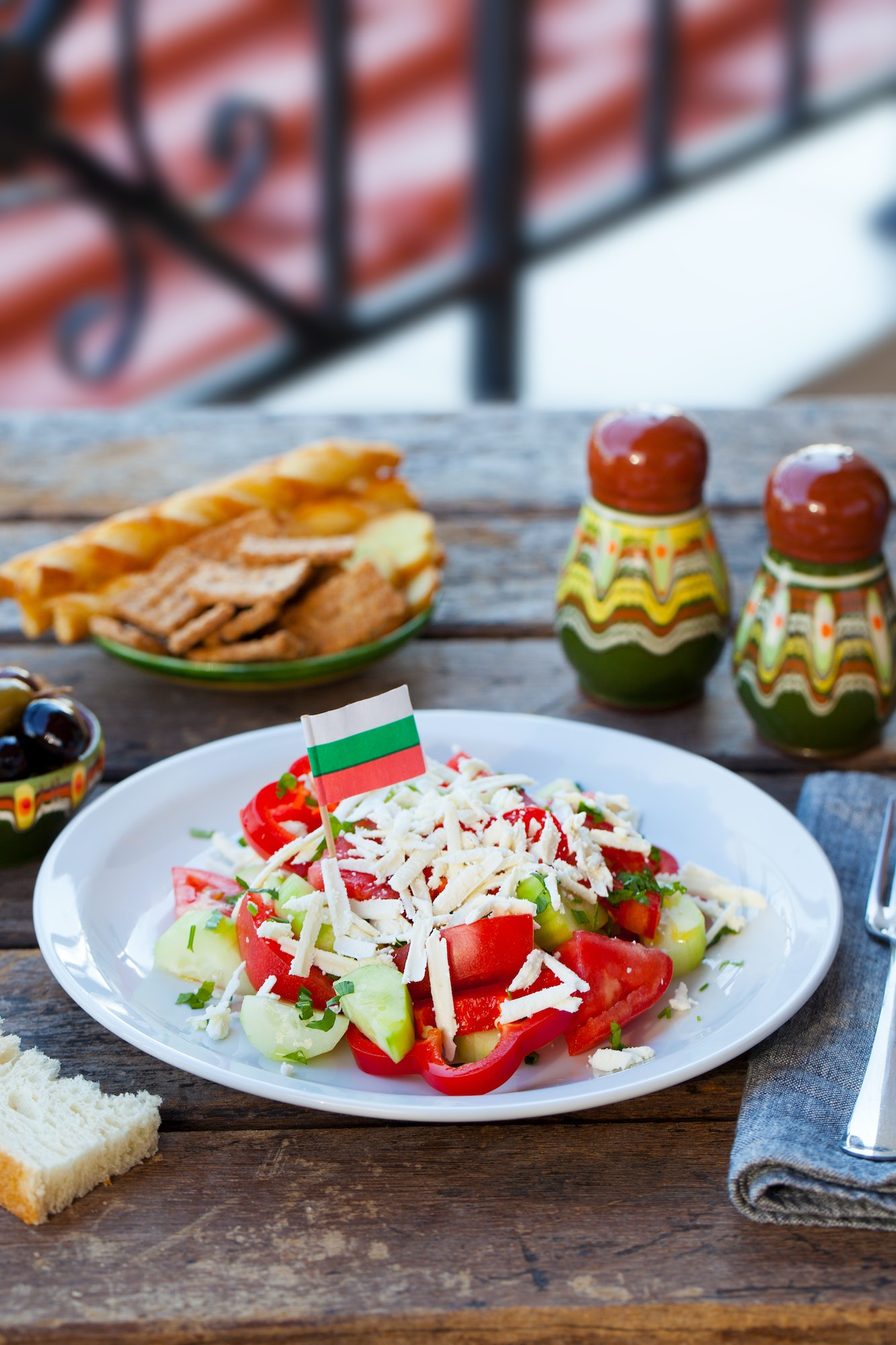Bulgarian cuisine is a hidden treasure in Eastern Europe, but it is not as well known as French, Italian or Spanish food. However, Bulgarian food is very rich and varied, with a mixture of Greek, Turkish and Slavic influences. In this article, we present you 20 things you may not have known about Bulgarian gastronomy.
- Bulgarian yogurt is one of the most famous yogurts in the world. It is said to be good for digestion and has a delicious flavor.
- Shopska salad is the national salad of Bulgaria. It is made with tomatoes, cucumbers, onions and feta cheese.
- Bulgarian cuisine makes extensive use of sweet paprika and hot paprika to flavor dishes.
- Ajvar is a sauce made with roasted peppers that is used to accompany meat or to spread on bread.
- Tarator is a cold soup made with yogurt, cucumber, garlic and nuts.
- Bulgarian moussaka is different from Greek or Turkish moussaka, it is made with potatoes and ground meat, instead of eggplant.
- Lentil soup and bean soup are very popular in Bulgaria.
- Bulgarian dishes usually include a large amount of pork and beef.
- Banitsa is a savory pastry made with filo dough and filled with feta cheese, spinach or zucchini.
- sujuk is a dry, spicy sausage made from pork or beef.
- Bulgarian cheese buns, called kashkaval, are very popular as a snack or to accompany food.
- Tsvetnitsa is a traditional Bulgarian sweet bread made with honey, nuts and dried fruits.
- Lukanka is a Bulgarian sausage made with pork, garlic and paprika.
- Pumpkin fritters are a Bulgarian delicacy made with grated pumpkin, flour and eggs.
- The katino meze is a Bulgarian appetizer board that includes cold cuts, cheese, olives and pickles.
- Kiselo mlyako is a Bulgarian drink made with yogurt and water.
- The chushkopek is a special machine for roasting peppers.
- Zucchini banitza is a lighter version of the traditional banitsa, made with zucchini instead of feta cheese.
- Ayran is a drink made with yogurt, water and salt, similar to Indian lassi.
- Bulgarian cuisine also features a variety of desserts, such as Bulgarian baklava, made with honey, walnuts and filo dough.
Benefits of Bulgarian gastronomy
Bulgarian cuisine is rich and varied, with a mixture of Greek, Turkish and Slavic influences. In addition to its delicious taste, Bulgarian cuisine also offers a number of health benefits.
Bulgarian yogurt is known for its probiotic properties, which help to improve the health of the digestive system. Shopska salad is rich in vitamins and minerals, thanks to fresh tomatoes, cucumbers and onions.
Ajvar, a sauce made with roasted peppers, is rich in vitamin C and antioxidants. Tarator, a cold yogurt and cucumber soup, is a good source of protein and healthy fats.
Bulgarian moussaka, made with potatoes and ground meat, is a good source of protein and complex carbohydrates. Lentil soup and bean soup are rich in fiber and protein, which helps maintain satiety and regulate blood sugar.
Bulgarian dishes with pork and beef are rich in protein and iron. Banitsa, a savory pastry made with feta cheese and filo dough, is rich in calcium and protein.
The sujuk, a dry, spicy sausage, is rich in protein and healthy fats. Bulgarian cheese buns, called kashkaval, are rich in calcium and protein.
Tsvetnitsa, a traditional Bulgarian sweet bread, is rich in complex carbohydrates and fiber. Lukanka, a Bulgarian sausage, is rich in protein and healthy fats.
Pumpkin fritters are rich in vitamin A and fiber. The katino meze, a Bulgarian snack board, is rich in protein and healthy fats.
Kiselo mlyako, a Bulgarian drink made with yogurt and water, is rich in calcium and protein.
In conclusion, Bulgarian cuisine is not only delicious, but also offers a number of health benefits. From its probiotic yogurt to its rich meat dishes and vitamin-packed salads, Bulgarian cuisine is an excellent choice for those looking to enjoy a delicious and healthy meal.





